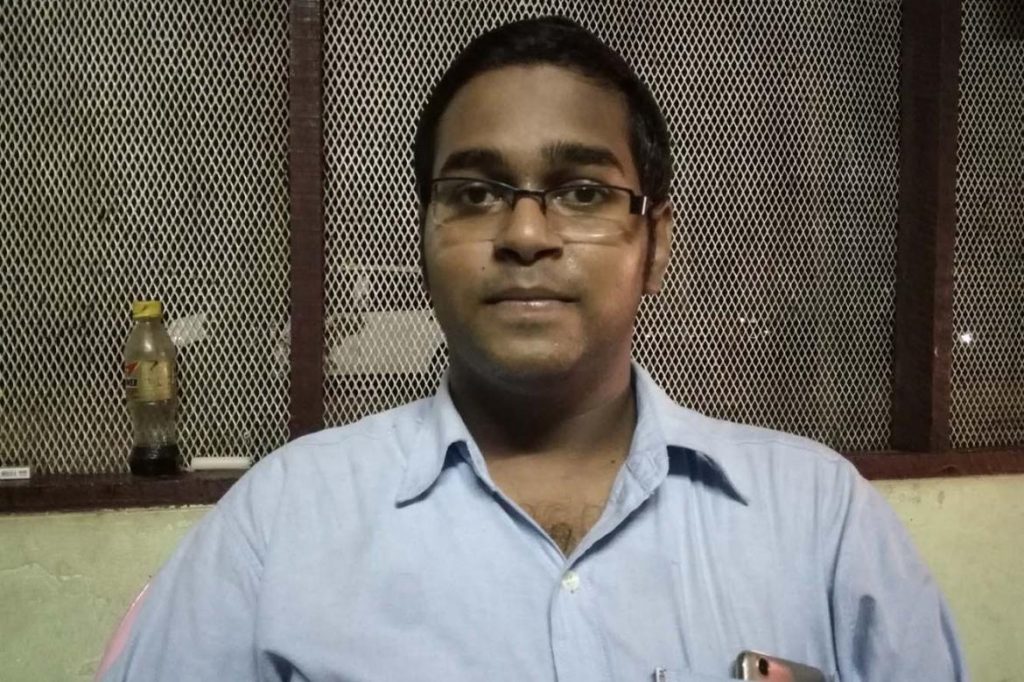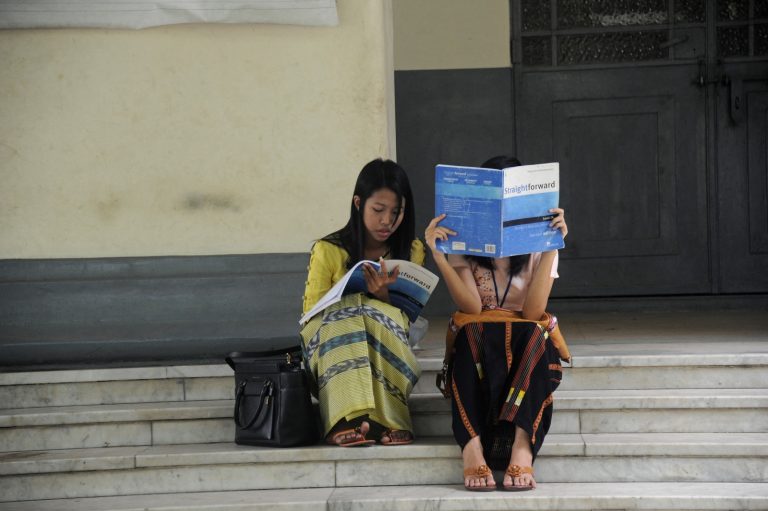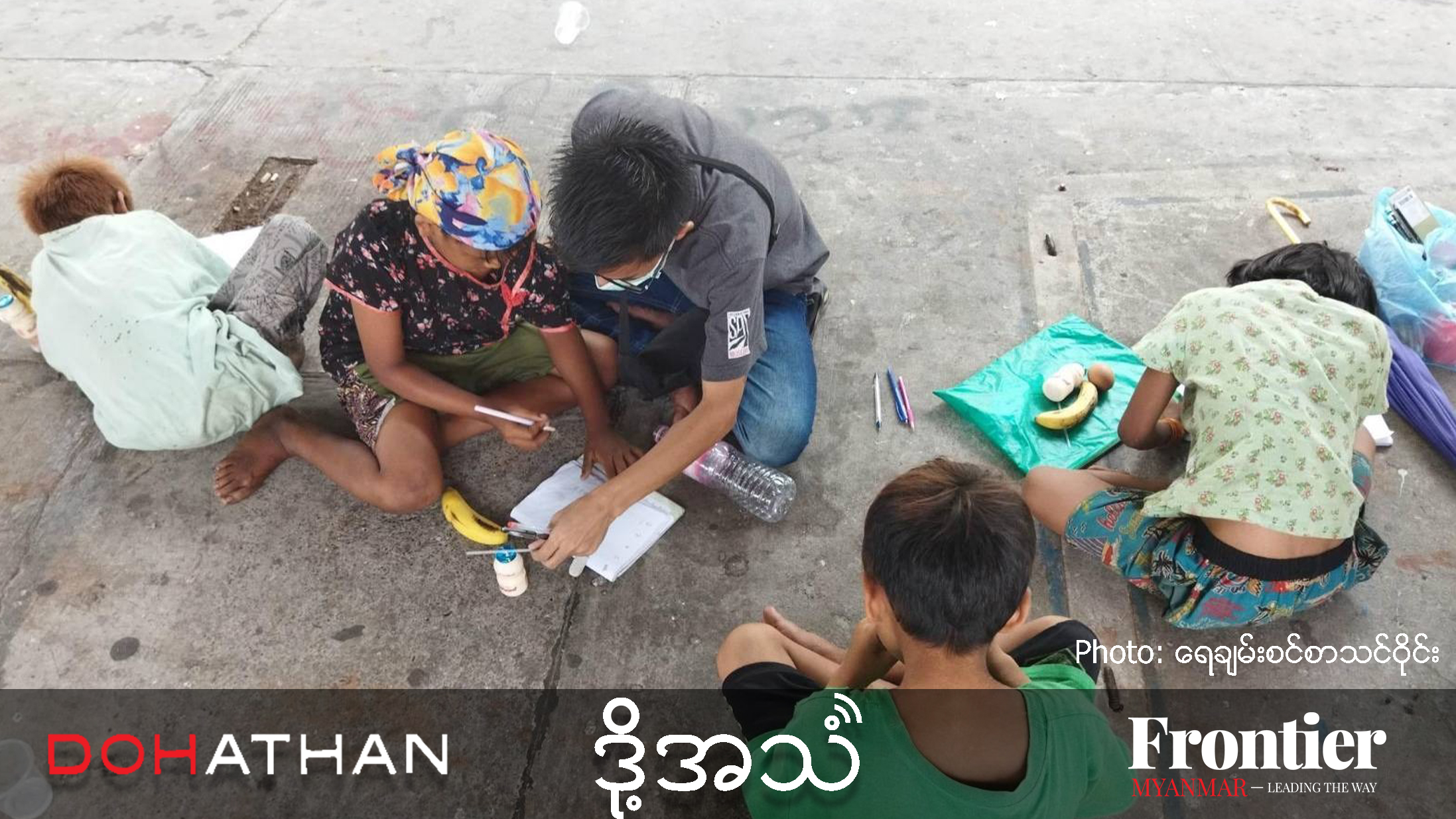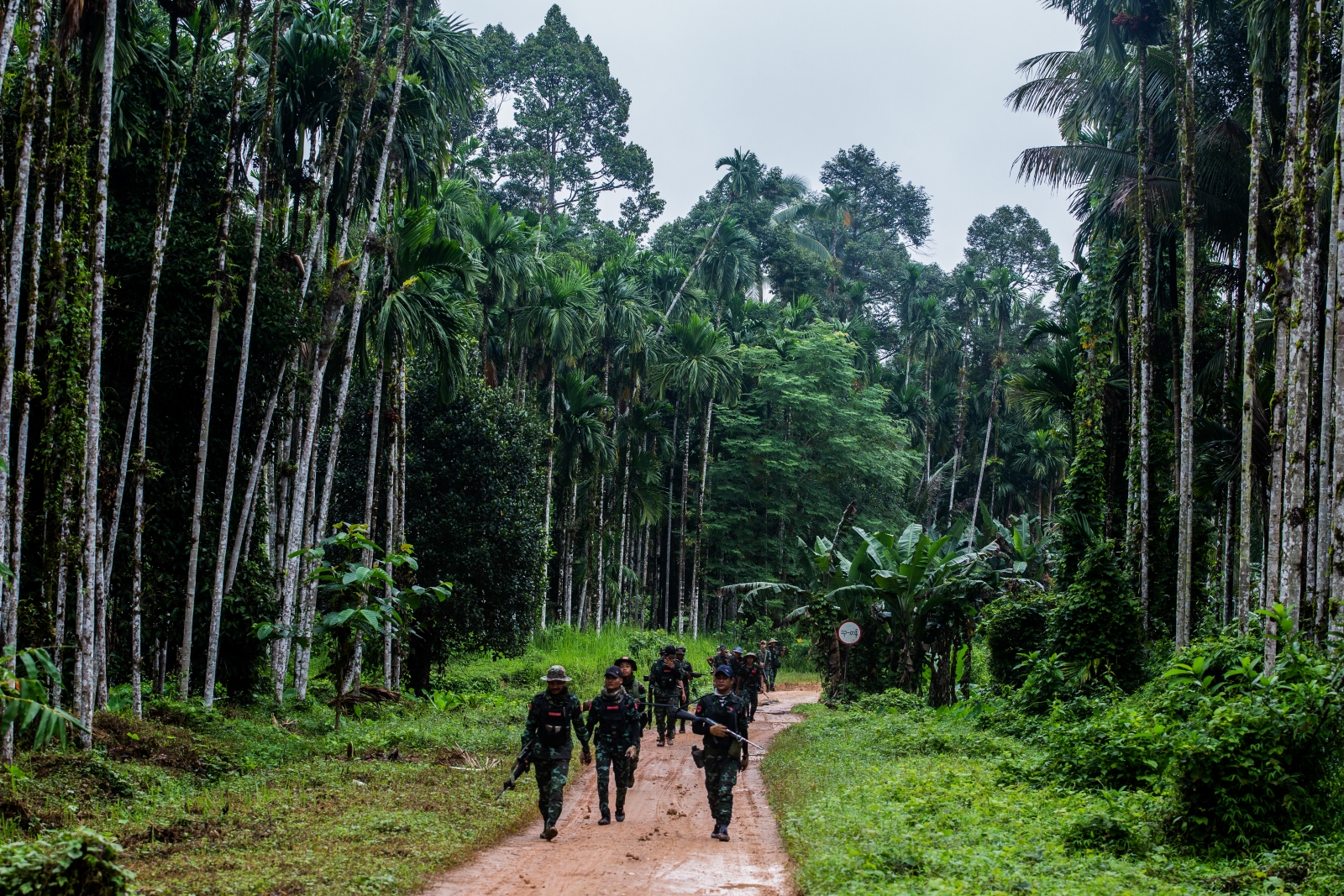Frontier interns Khine Me Me Win and Season Myo Kyaw ask Yangon residents for their views on health and education reform since the transition to civilian rule: what has changed, what has worked and what still needs to be done.
Dr Zaw Htet Aung, medical student, 25
Since 2011, the public health sector has improved a lot. Formerly, only 1 percent of the national budget was allotted to health but now it’s 3 percent. Hospitals have become bigger and better; 250-bed hospitals are now 500-bed, and 500-bed hospitals have been extended to 1,000 beds. Nowadays, many items are given free of charge. For instance, at Yankin Children’s Hospital, you don’t need to spend a single kyat: everything is free. Patients even get free food from donors.
There is one thing that needs to be changed, though. Hospitals have a huge surplus of unnecessary medicines but lack essential medicines. I think there should be better coordination between hospital staff and officials from the Ministry of Health so that the ministry can supply the needs of the hospitals.
Ko Ye Naing Win, Myanmar Special Media CEO and founder, 36
Since 2011, the elected government started to listen to the voice of the people and the budget for education and health has increased. I think they are trying to do the right thing.
But to transform the education and health system, we must study international practices and choose those that are suitable for Myanmar. We should give priority to education reform because our education system is out of date.
U Hla Moe, trader, 50
In education, it’s essential that all children of school age attend school. In basic education, tuition fees, stationery and school uniforms are all now free of charge. These are good steps.
Support more independent journalism like this. Sign up to be a Frontier member.
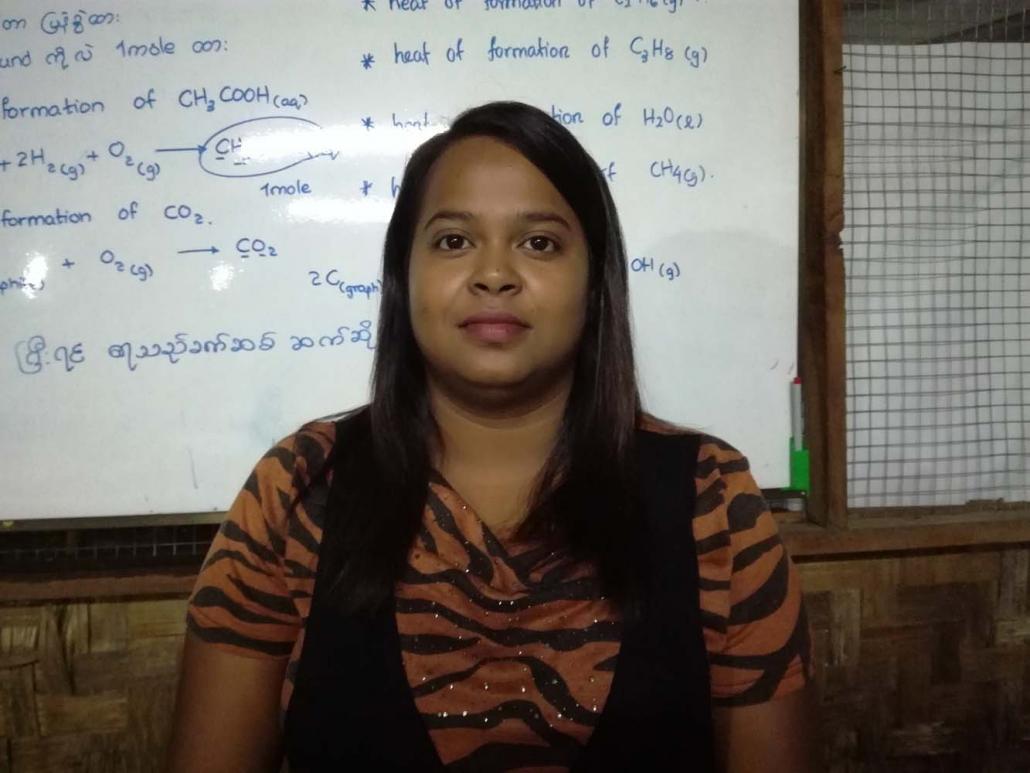
Daw Theint Thuzar Aung
Daw Theint Thuzar Aung, senior assistant teacher, 31
In education, reform has been going on vaguely; it’s just trial and error. Since 2011, a new method of teaching, called child-centred approach, has been introduced but it’s not successful. This method has been used successfully in foreign countries, but what has made it unsuccessful in Myanmar is that we don’t have the proper school facilities and we have [a very high] student-to-teacher ratio … the education system is as poor as ever.
The new system is designed to make children happy at school. The children shouldn’t drop out just because they cannot follow the lessons. If they drop out of school, they will become child workers. But to avoid students dropping out, the standard of education has been reduced. It only leads to keeping many unruly, delinquent boys in the classroom. So there has been change, but to little effect.
If you want reform, it’s better to change the whole system instead of changing little by little. If you want to produce well-educated young people like in foreign countries, you have to do it this way. You also need a sufficient number of teachers.
Priority should be given to changing the education system. It’s shameful for a government to let all the students pass the exam knowing that many of them have in fact failed.
Nilar Lin, tutor, 27
Formerly there was a mid-term exam so children did not forget their lessons. Now there is only a year-end exam, so children forget. It makes it difficult for them because they have to study again from the start.
U Hla Shwe, cancer patient, 55
Yangon General Hospital has improved a lot. It’s now fully stocked with medicines and necessary equipment. Treatment is good. Formerly it wasn’t like this. You had to run around looking for medicine and other necessary things. You had to buy almost everything from outside yourself. Now the patients get it all free. You don’t have to buy anything except if they run out at the hospital. I have to buy one type of medicine at Bogyoke Market but it’s not an expensive one. The operation is free of charge. Formerly the operation was said to be free of charge, but you would have to wait so long for your turn if you didn’t pay under-the-table money. So, you don’t need to pay. But the hospital is still short of beds and sometimes medicines run out. I wish hospitals had a sufficient supply of medicine.
U Than Lwin Htun, betel quid vendor, 48
I wish that when you finished your education, you could get a job. That’s what happens in foreign countries. But look at me: I’m a graduate but I have no job. I want the kind of education that’s useful and can be applied. Otherwise it’s useless, like it was for me.
May Thet Khine, principal of a private pre-school, 30
Pre-school education gives priority to child’s development. Formerly, reading and writing comes first and learning by heart. Child development was already here. But it was not used widely. Now it has come to the fore. It is also beneficial. Some parents don’t want to accept it, but some understand and accept it. In educational reform, not only teachers but also parents should participate.


